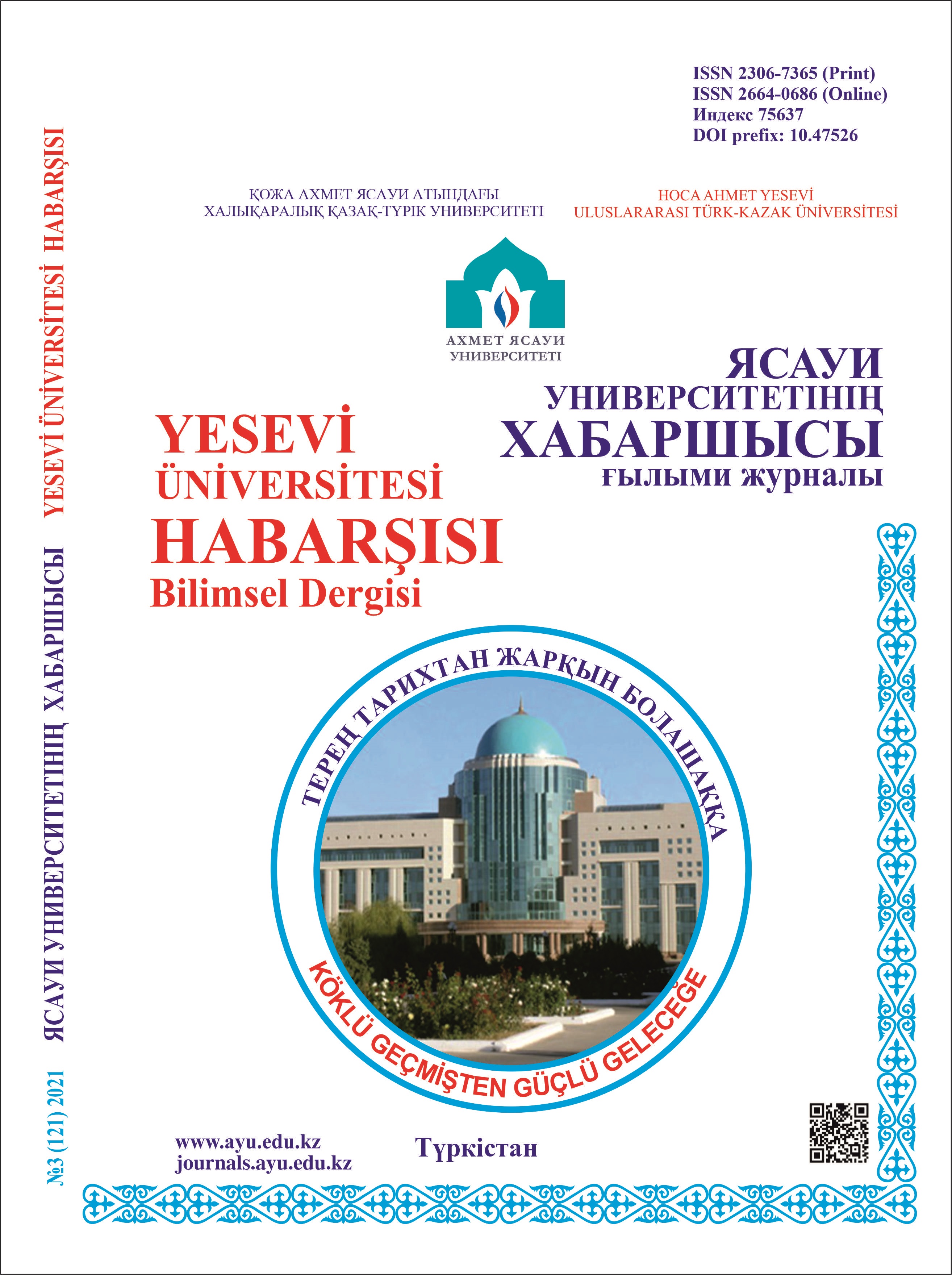Determination of the Validity and Reliability of the World Health Organization's Healthy Lifestyle Scale in the Kazakh Version based for University Students
Keywords:
Kazakhstan, World Health Organization, university, student, life quality, validity, reliability.Abstract
The World Health Organization defines quality of life as people's perception of
their position in life in the context of their cultural, value system in relation to their goals,
expectations, standards and interests (World Health Organization, 1997). In many studies, quality of
life has been defined as happiness, contentment, and stability, and the concept of quality of life has
been used as a synonym for life satisfaction, content of life, and happiness. Nevertheless, life
satisfaction, which is one of the most important determinants of quality of life, is individualistic in
nature.
The aim of the current study is to verify the validity and reliability of the WHO short form of
quality of life (WHOQOL – Bref) in the Kazakh language. In this context, a total of 509 students,
208 men (40.9%) and 301 women (59.1) volunteered for the study. The scale consisted of 27 items
and 5 smaller criteria (general health, physical health, psychological health, social relationships, and
the environment). In the analysis of the study, a confirmatory factor analysis was used regarding the structural suitability of the inventory, and Cronbach Alpha reliability analysis was used to determine internal compliance.
In conclusion, we can say that the «WHO brief form of quality of life (WHOQOL-Bref) in Kazakh» is a valid and reliable assessment tool.

